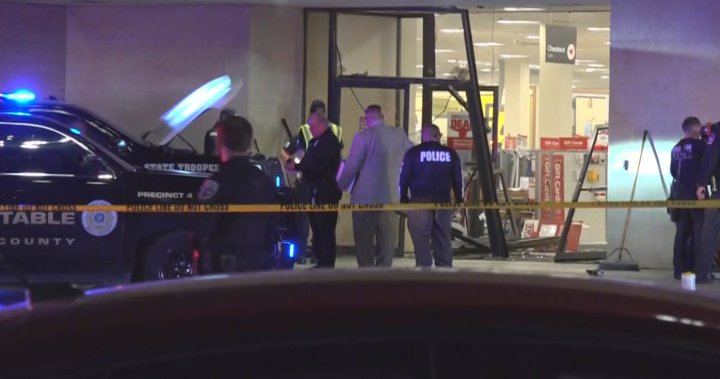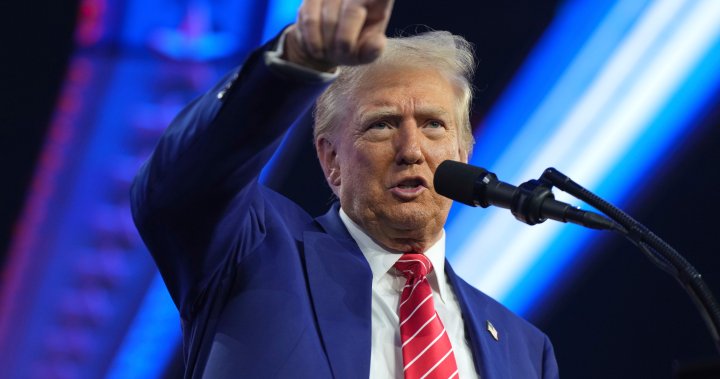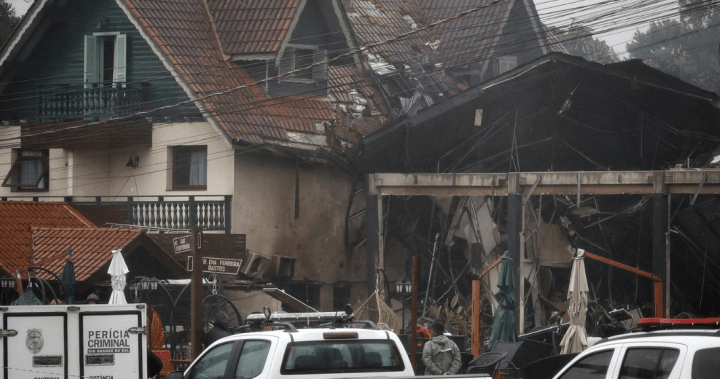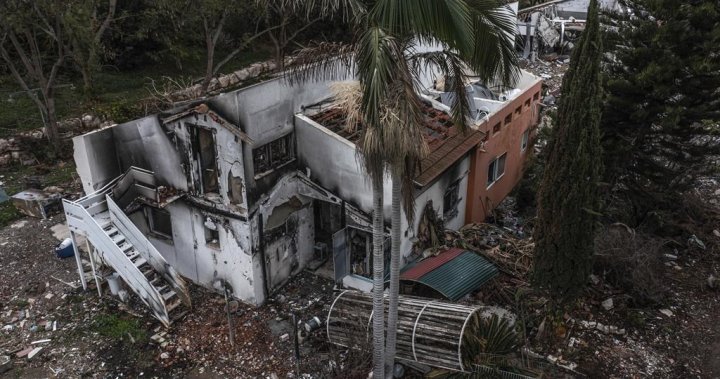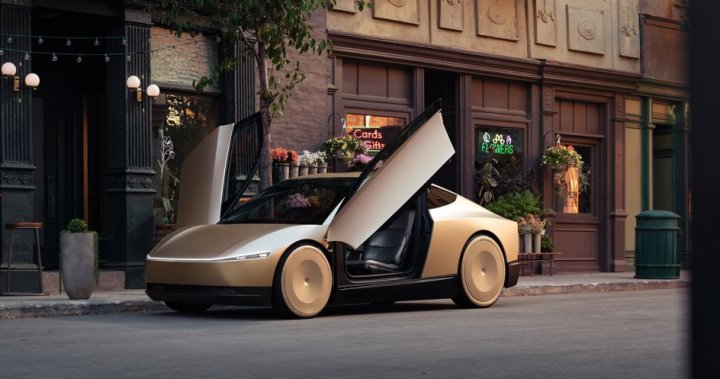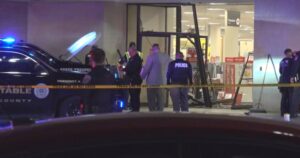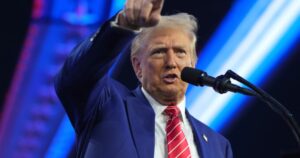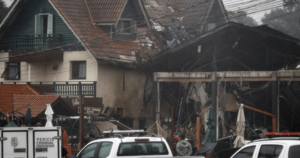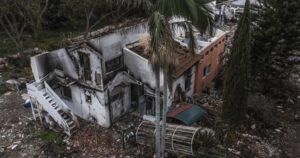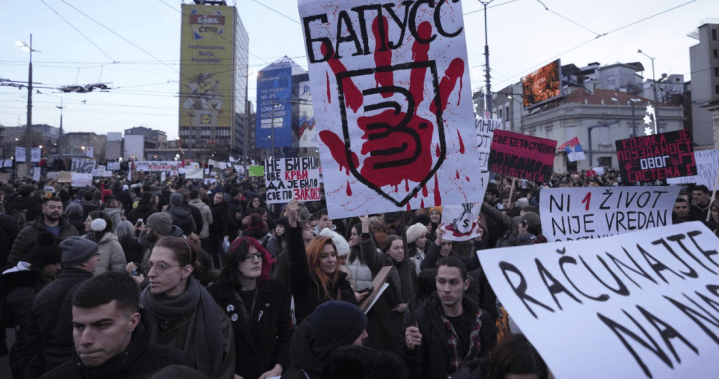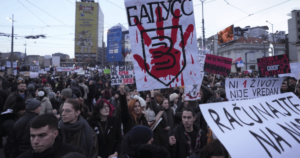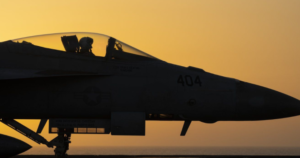On Thursday night, Tesla CEO Elon Musk set his sights on the future as his sleek, self-driving cybercar cruised down a city street at Warner Bros. Studios. in Burbank, California – but the flashy display wasn’t really enough to attract investors.
The Cybercab, a robotaxi, is a shiny, autonomous two-seat vehicle with double gull-wing doors and no steering wheel or pedals.
At Tesla’s invitation-only “We, Robot” event, Musk estimated that the consumer cost of a Tesla Cybercab would be about US$30,000 ($41,250 CAD). The billionaire said that the car will “most likely” be ready for purchase by 2027.
Given the relatively low price, Musk said autonomous vehicles could be considered “one-man mass transit,” with a fuel cost of 20 US cents per mile (12 US cents per km) over time.
Musk announced that charging the Cybercab will be inductive and not require plugs. (Inductive charging is wireless and uses electromagnetic induction to provide wireless electricity; for example, driving a car to a charging station to refuel it.)
Story continues below ad
Tesla CEO Elon Musk on October 10, 2024, unveiled the company’s new self-driving robotaxi, called Cybercab, which the billionaire said would be ready for purchase by 2027 for about US$30,000 ($41,250 CAD).
Tesla
Despite Musk’s ambitious promises and positive reaction from the event crowd, investor reaction was lukewarm.
Tesla shares fell six percent before the bell on Friday. The stock, which has taken a hit in recent years — on concerns that rival electric car brands are eating away at Tesla’s market share — is up nearly 50 percent since April, when Musk announced the shift to taxis.
However, Tesla shares have fallen 8 percent over the past year, compared with a 33 percent increase in the broad-market Standard & Poor’s 500 index.
The interior of the newly revealed Tesla Cybercab, which Elon Musk claimed would be ready for purchase by 2027.
Tesla
Musk said that the company has already produced 21 e-taxis.
Story continues below ad
At the big-budget event on Thursday, he also unveiled Tesla’s new Robovan, a bus-like self-driving vehicle that can transport 20 people or excess cargo.
Tesla CEO Elon Musk announced that the newly unveiled self-driving Robovan can transport up to 20 passengers.
Tesla
Musk envisions robots being used to “solve the problem of high-density transportation,” such as transporting an entire sports team.

Get daily national news
Get the day’s top political, economic and current affairs news, headlines, delivered to your inbox once a day.
He said the robots would also use inductive charging, but did not reveal when the car would go into production, or how much it would cost.
Optimus is your personal R2D2/C3PO, but better
It will also transform physical labor in industrial settings pic.twitter.com/iCET3a9pd8
— Tesla (@Tesla) October 11, 2024
Story continues below ad
“With autonomy, you can get your time back,” Musk said.
He claimed that his Cybercab would improve people’s lives by saving them time while driving through traffic or searching for a parking space.
“You can think of a car in the self-driving world like a little lounge,” he said, adding that future Tesla owners could work, watch a movie or spend time on their phone, rather than driving mindfully.
Furthermore, Musk boasted that self-driving cars will “save lives and prevent injuries.” He predicted that self-driving vehicles would one day be 10 times safer than a human driver, but did not provide any additional information.
Musk did not specify where Tesla plans to produce its two new self-driving vehicles.
Trending now
-
![]()
Fisher-Price Snuga Swings has been recalled after reports of 5 infant deaths
-
![]()
Floridians who stayed behind Hurricane Milton share how they fared
However, unsupervised full self-driving (FSD) is expected to launch in California and Texas in Model 3 and Model Y electric vehicles by next year. As of now, Tesla only offers a “supervised” version of FSD, which requires a human driver on guard to steer or brake behind the wheel.
“You can fall asleep and wake up at your destination,” Musk said of full self-driving.
It is not clear whether Tesla has already applied for or obtained the appropriate permits to operate self-driving cars on public roads.
Story continues below ad
Aside from the vehicles, Musk seemed excited to show off the company’s humanoid robots. A line of robots, called Optimus, entered the event space alone in a single-file line.
In an effort to prove that Optimus isn’t just a “canned video,” Musk told the audience that the Optimus robots, which served drinks during the event, “will be walking among you.” He asked the audience to “be kind” to the robots.
Musk said Optimus in the future could be “something amazing; Something anyone can own.”
He predicted an Optimus would one day cost “probably $20,000 to $30,000 USD in the long run” (about $27,500 to $41,250 CAD).
Tesla advertised Optimus as an “autonomous assistant” and “human friend.”
– Elon Musk (@elonmusk) October 11, 2024
Story continues below ad
“I think this will be the biggest product ever, of any kind,” Musk bragged.
Time will tell if Musk and Tesla are able to deliver on the ambitious promises made during Thursday’s flashy product launch. The company has in the past repeatedly missed deadlines set by Musk, including a 2015 claim that Tesla’s fleet of cars would reach “full autonomy” within three years. In 2024, this is still not the case.
Cybercab will have to compete with other self-driving vehicles, including Alphabet-owned Waymo and other Chinese manufacturers. By pursuing a lower-cost technology path for Tesla’s self-driving vehicles, Musk believes the company will be able to scale much faster than competitors.
Tesla’s strategy is much simpler and cheaper than that of its competitors, but it suffers from serious weaknesses. Most importantly, the artificial intelligence technology underlying the self-driving system makes it almost impossible to determine the cause of an accident or other failure – something that could worry regulators.
Tesla’s competitors use similar AI and camera technology, but rely on so-called redundant systems and more expensive sensors as a safety precaution.
Shares of ride-hailing companies Uber and Lyft rose about 4% in pre-market trading, a sign that Musk’s announcements are not seen as a threat to companies.
— With files from Reuters

